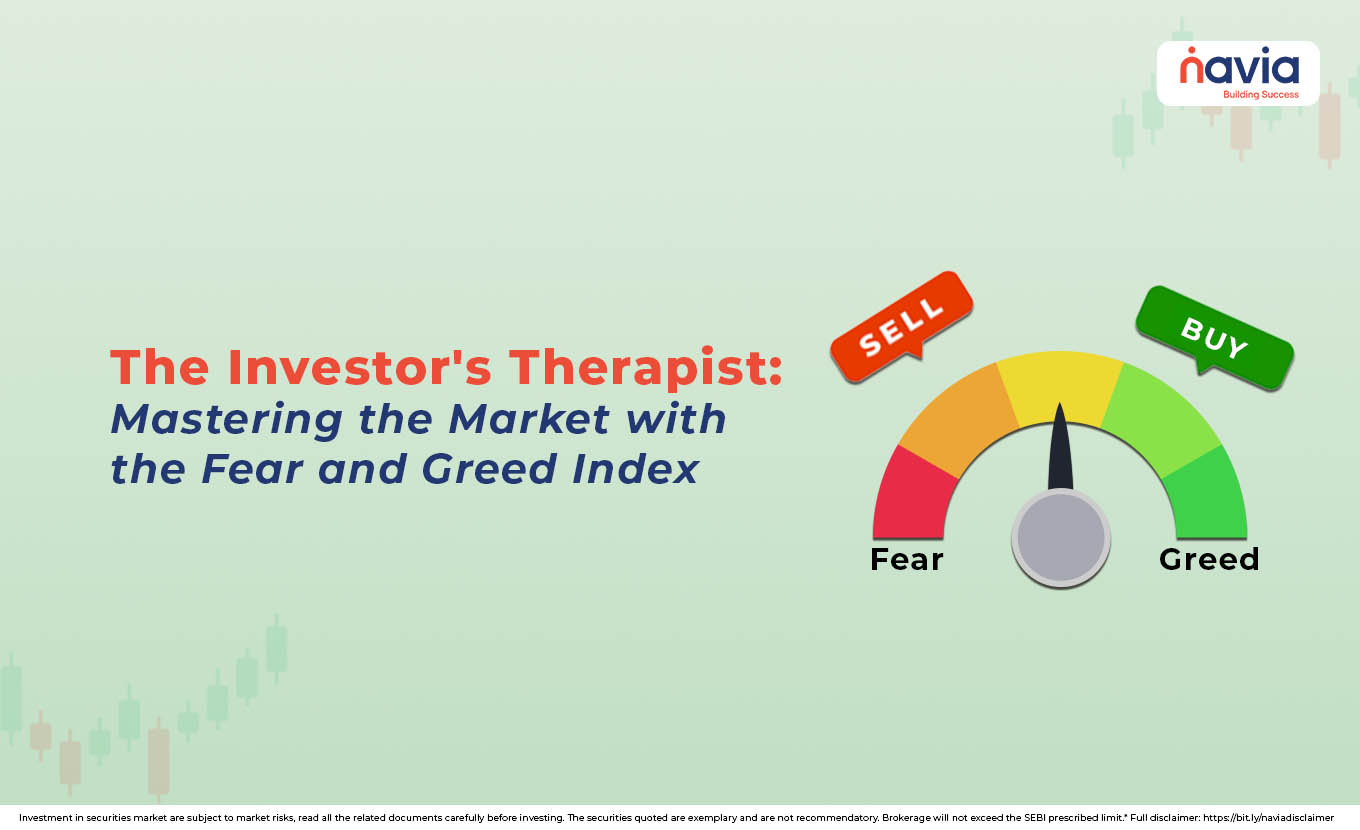Debunking Stock Market Myths: Separating Fact from Fiction

The stock market is one of the most intriguing and potentially rewarding places to grow your wealth. However, despite its prominence, the stock market is shrouded in myths and misconceptions that often steer new and even seasoned investors in the wrong direction. Believing these myths can lead to poor decision-making, unnecessary risk, and disappointment. In this blog, we will explore some of the most common myths that persist in the stock market and provide clarity to help you make informed investment decisions.
1. Stock Prices Always Go Up
One of the most enduring myths is the belief that stock prices always go up. While the stock market tends to rise over the long term, thanks to factors like economic growth and inflation, individual stock prices do not always move in an upward trajectory. Stocks are influenced by a variety of factors, including:
● Company performance: Poor earnings reports, scandals, or mismanagement can lead to a stock’s decline.
● Economic conditions: Inflation, interest rate hikes, or recessions can have a broad impact on markets.
● Market sentiment: Sometimes stock prices drop due to fear or negative investor sentiment, even if the fundamentals of the company are strong.
Key takeaway:
While long-term stock market trends can be positive, stock prices can fluctuate in the short term. Investors must be prepared for both upward and downward movements.
2. You Need a Lot of Money to Invest in the Stock Market
Many people avoid investing because they believe that they need a large sum of money to start. However, this is simply not true. With the advent of fractional shares and mutual funds, anyone can start investing with relatively small amounts of money. Fractional shares allow you to purchase a portion of a share, meaning you don’t need to buy a whole share if it’s too expensive.
Additionally, exchange-traded funds (ETFs) and mutual funds allow you to pool your money with other investors, providing diversification even if you invest a small amount.
Key takeaway:
You can start investing with a modest amount of money through fractional shares, ETFs, and mutual funds, making the stock market more accessible than ever before.
3. You Need to Be an Expert to Invest in the Stock Market
Many potential investors are intimidated by the complexity of the stock market, thinking they need to be experts in finance to succeed. While having knowledge is helpful, you don’t need to be a
financial wizard to start investing. Many tools and resources, such as robo-advisors, financial advisors, and educational materials, can guide beginners.
Moreover, long-term strategies like buying index funds or ETFs can simplify investing. These funds track an entire market index (like the NIFTY 50) and spread your investment across a variety of stocks, reducing the need for constant monitoring or stock-picking expertise.
Key takeaway:
With the right tools and resources, anyone can start investing in the stock market without needing to be an expert.
4. You Can Get Rich Quick in the Stock Market
The idea that the stock market is a get-rich-quick scheme is a dangerous myth. Many people dream of making quick fortunes by buying and selling stocks at the right time, but this is often unrealistic. The stock market is volatile in the short term, and trying to time it perfectly is extremely difficult, even for seasoned investors.
Most successful investors advocate for a long-term investment strategy where wealth builds over time through compounded returns. Attempting to chase quick profits often leads to rash decisions, such as panic selling during market dips.
Key takeaway:
Stock market investing is not a shortcut to wealth. Long-term investment strategies generally yield better results than trying to time the market.
5. It’s Easy to Beat the Market
Many believe that by picking individual stocks or timing the market, they can consistently outperform it. However, studies show that even professional money managers often fail to beat the market over time. Trying to pick winners and avoid losers is inherently challenging because of the unpredictability of markets.
Instead, many experts recommend investing in low-cost index funds that track the overall market. These funds often outperform actively managed portfolios in the long run because they minimize costs and diversify risk.
Key takeaway:
It’s difficult to consistently beat the market. Investing in diversified portfolios or index funds is a proven strategy for steady long-term returns.
6. Buy Low, Sell High is the Best Strategy
While the phrase “buy low, sell high” is often touted as the ideal investing mantra, it oversimplifies the complexities of the stock market. Trying to time the market to buy at its lowest point and sell at its highest is extremely difficult, if not impossible.
Instead, many investors benefit from a buy-and-hold strategy, where they purchase stocks or funds and hold onto them for long periods, regardless of market fluctuations. Rupee-cost averaging, where you invest a fixed amount regularly regardless of the stock’s price, can also help you avoid the pitfalls of market timing.
Key takeaway:
Timing the market is challenging, and focusing on long-term investing through consistent contributions may be a better approach than attempting to buy low and sell high.
7. Follow the Crowd
Some investors believe that if many people are investing in a particular stock or sector, it must be a good investment. This is known as the “herd mentality.” However, following the crowd can often lead to buying at inflated prices or investing in overhyped stocks that eventually crash. The dot-com bubble in the early 2000s and the recent cryptocurrency mania are examples of how herd behavior can lead to disastrous results.
Instead of blindly following trends, do your own research and make investment decisions based on your financial goals, risk tolerance, and sound analysis.
Key takeaway:
Avoid herd mentality and make informed investment decisions based on your financial goals rather than following the crowd.
8. Stock Market Investing is Like Gambling
This myth equates the stock market to a casino, where outcomes are left to chance. While both gambling and stock trading involve risk, investing in the stock market is not gambling. When you invest in stocks, you are buying ownership in a company and can analyze its fundamentals, market position, and growth prospects to make informed decisions.
Gambling, on the other hand, relies purely on luck and offers no opportunity for analysis or strategic planning. The stock market rewards informed decision-making and long-term planning, while gambling is a zero-sum game.
Key takeaway:
The stock market is not a gamble when approached with research, long-term strategy, and informed decision-making.
9. Only Wealthy People Make Money in the Stock Market
Another common myth is that only the wealthy can succeed in the stock market. While it’s true that having more capital can lead to larger profits, it’s also possible for small investors to grow their wealth through regular, consistent investing. Compound interest and long-term market growth allow even small contributions to build substantial wealth over time.
For instance, investing ₹5,000 every month into a mutual fund or ETF that returns an average of 10% per year could grow significantly over the years.
Key takeaway:
Stock market investing is not reserved for the wealthy. Even small, consistent investments can grow into substantial wealth over time.
10. Stocks Are Too Risky
While investing in stocks does carry risk, avoiding them entirely because of fear can be a mistake. Stock market risk can be mitigated through diversification, meaning you spread your investments across different sectors, companies, and asset classes. Investing only in safe assets, such as savings accounts or bonds, can result in much lower returns and may not keep pace with inflation.
Over the long term, the stock market has outperformed other asset classes, making it one of the best vehicles for wealth creation.
Key takeaway:
All investments carry risk, but proper diversification and long-term planning can reduce stock market risks significantly.

Conclusion
The stock market is a powerful wealth-building tool, but to succeed, you must separate fact from fiction. Misconceptions like “stocks always go up” or “it’s easy to beat the market” can lead to misguided decisions, while strategies like consistent investing, diversification, and long-term planning are proven approaches. Understanding and debunking these myths can help you become a more informed and successful investor.
Remember that investing requires patience, research, and a clear understanding of your financial goals. By staying informed and avoiding common stock market myths, you can increase your chances of long-term success.
We’d Love to Hear from you-
DISCLAIMER: Investments in the securities market are subject to market risks, read all the related documents carefully before investing. The securities quoted are exemplary and are not recommendatory. Brokerage will not exceed the SEBI prescribed limit.





